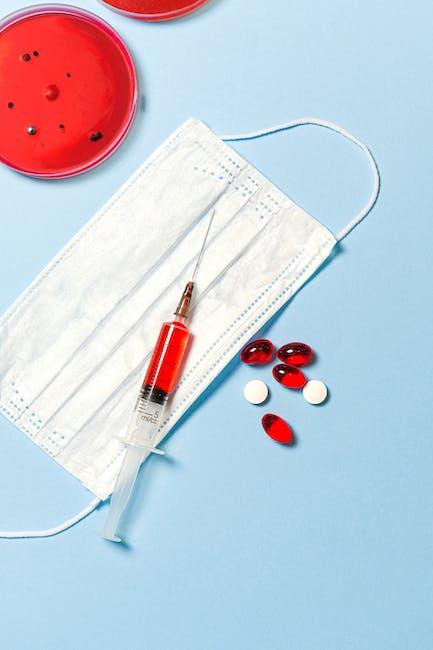
Understanding Anaemia: Causes, Symptoms, and Treatments
Anaemia is a condition that occurs when the body does not have enough red blood cells or hemoglobin to supply adequate oxygen to the body’s tissues. This can lead to symptoms such as fatigue, weakness, and shortness of breath. There are many different causes of anaemia, and it can affect people of all ages and backgrounds. In this article, we will discuss the causes, symptoms, and treatments for anaemia, as well as ways to prevent it.
Causes of Anaemia
There are several different causes of anaemia, and each type of anaemia has its own unique set of causes. Some of the most common causes of anaemia include:
– Iron deficiency: This is the most common cause of anaemia and occurs when the body does not have enough iron to produce hemoglobin.
– Vitamin deficiency: Deficiencies in vitamins such as vitamin B12 and folic acid can also cause anaemia.
– Chronic diseases: Conditions such as kidney disease, cancer, and HIV/AIDS can all lead to anaemia.
– Bone marrow problems: Disorders such as aplastic anaemia and myelodysplastic syndromes can affect the production of red blood cells.
– Pregnancy: Anaemia is common during pregnancy due to the increase in blood volume and the need for extra iron.
– Blood loss: This can occur due to heavy menstrual periods, stomach ulcers, or other internal bleeding.
Symptoms of Anaemia
The symptoms of anaemia can vary depending on the cause and severity of the condition. Some of the most common symptoms of anaemia include:
– Fatigue and weakness
– Shortness of breath
– Dizziness or lightheadedness
– Pale or yellow skin
– Irregular heartbeat
– Cold hands and feet
– Chest pain
– Headaches
– In severe cases, anaemia can lead to heart problems, including an enlarged heart or heart failure.
Treatments for Anaemia
The treatment for anaemia will depend on the cause and severity of the condition. Some of the most common treatments for anaemia include:
– Iron supplements: If the anaemia is due to iron deficiency, iron supplements may be prescribed to help increase iron levels in the body.
– Vitamin supplements: If the anaemia is due to a deficiency in vitamin B12 or folic acid, vitamin supplements may be prescribed to help increase levels of these vitamins.
– Blood transfusions: In severe cases of anaemia, a blood transfusion may be necessary to replace the lost red blood cells.
– Medications: In some cases, medications such as erythropoietin-stimulating agents may be prescribed to help stimulate the production of red blood cells.
– Dietary changes: In some cases, making dietary changes such as increasing the intake of iron-rich foods or vitamin-rich foods may help improve anaemia.
Preventing Anaemia
There are several things you can do to help prevent anaemia, including:
– Eating a balanced diet: Eating a diet rich in iron, vitamin B12, and folic acid can help prevent anaemia.
– Taking supplements: If you are at risk for anaemia, such as during pregnancy, taking supplements can help prevent deficiencies.
– Managing chronic diseases: If you have a chronic disease that can lead to anaemia, it is important to work with your healthcare provider to manage the condition effectively.
– Treating underlying conditions: If you have an underlying condition that can lead to anaemia, such as ulcers or heavy menstrual periods, it is important to seek treatment to help prevent anaemia.
– Regular check-ups: Regular check-ups with your healthcare provider can help detect anaemia early and start treatment as soon as possible.
In conclusion, anaemia is a condition that occurs when the body does not have enough red blood cells or hemoglobin to supply adequate oxygen to the body’s tissues. There are many different causes of anaemia, and it can affect people of all ages and backgrounds. The symptoms of anaemia can vary depending on the cause and severity of the condition, and the treatment for anaemia will depend on the cause and severity of the condition. There are several things you can do to help prevent anaemia, including eating a balanced diet, taking supplements, managing chronic diseases, treating underlying conditions, and regular check-ups. By being aware of the causes, symptoms, and treatments for anaemia, you can take steps to prevent or manage this condition effectively.

















